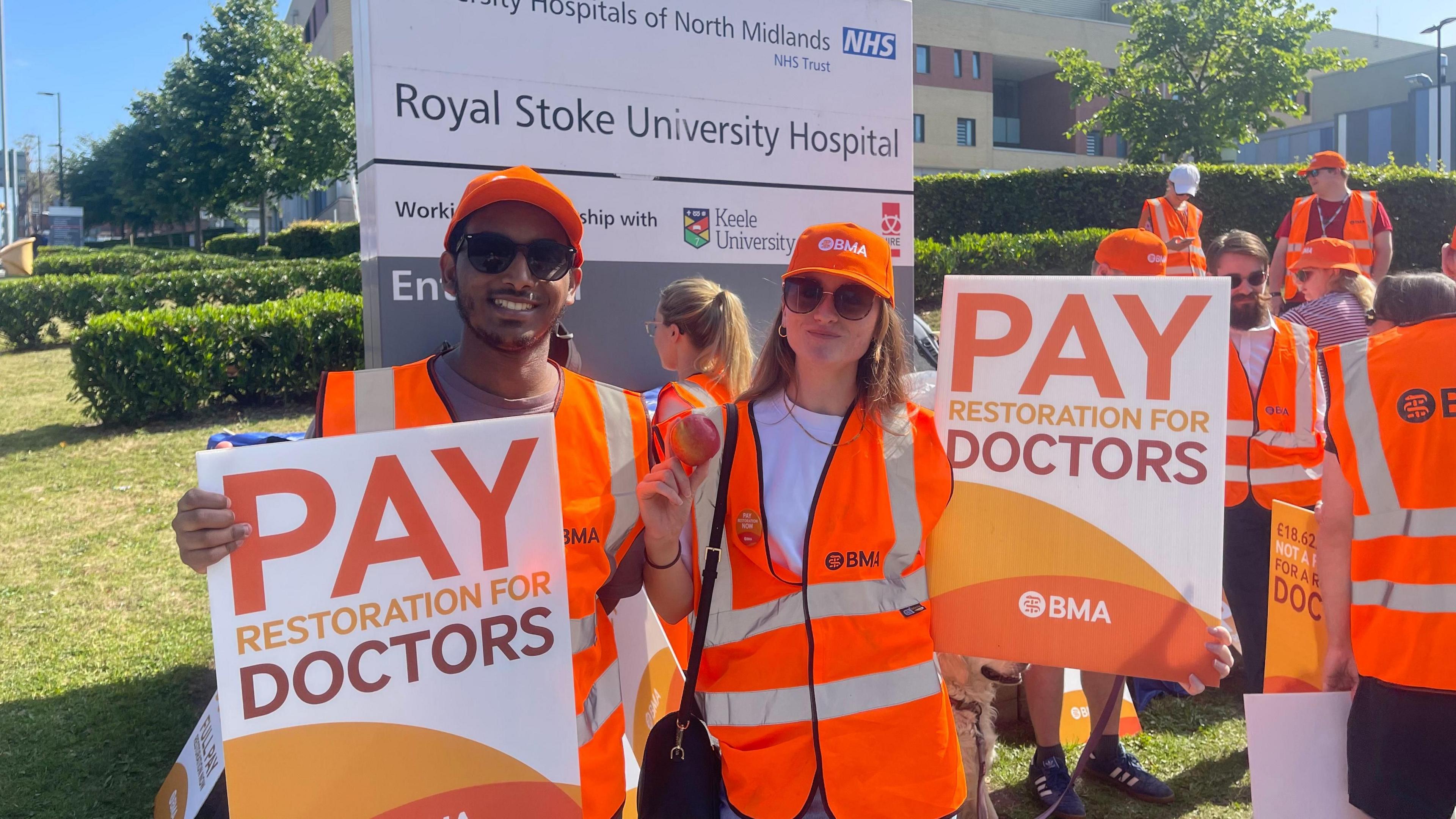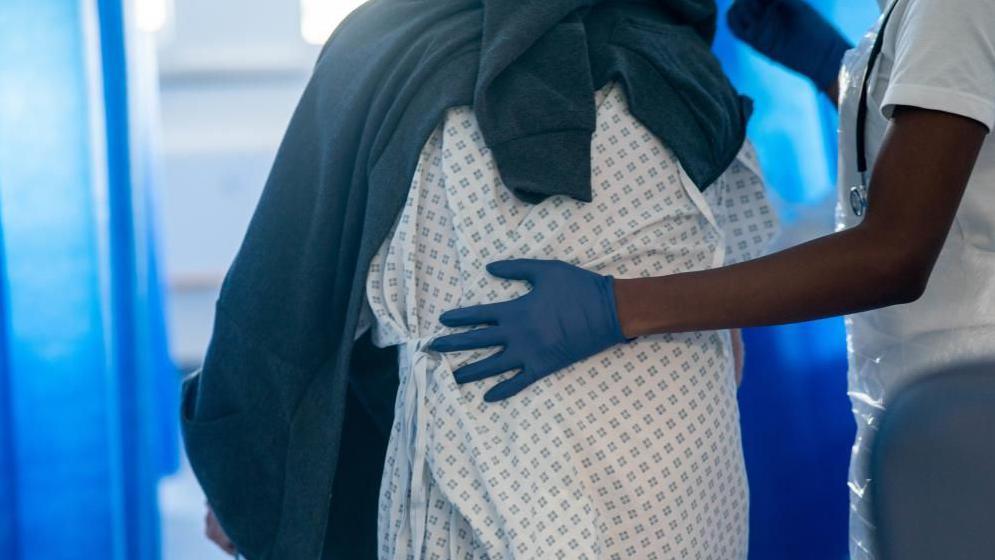Goodwill and strain for hospitals during strike
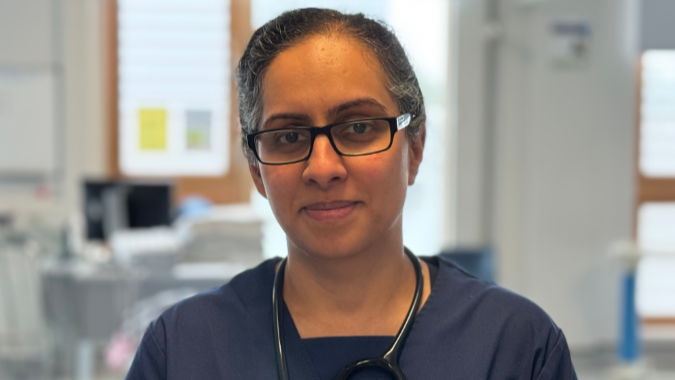
Dr Harj Kainth, an acute medicine consultant, said she had worked extra shifts during the strike
- Published
Planning and organising has helped keep services running at Wolverhampton's New Cross Hospital during a five-day strike by doctors but it has been difficult to maintain, a medical director says.
Resident doctors in England return to work on Wednesday after their walkout.
The Royal Wolverhampton NHS Trust, which runs New Cross and Cannock Chase Hospital, said 236 non-urgent appointments were cancelled across both sites and many have had to be rescheduled.
"We've tried to limit the impact on other services and been successful at that but obviously, as time goes on, it become more difficult to do," Dr Phil Dainty, the divisional medical director at New Cross, said.
Why are resident doctors striking and what are they paid?
- Published13 November
Resident doctors, previously known as junior doctors, said they took the strike action because they have not had a "credible pay deal" for 2025-2026.
Health Secretary Wes Streeting had argued the strike was "unreasonable" after pay rises in recent years and, while it was not possible to eliminate disruption to services, he said it was being kept to a minimum.
Up to 40% of the 600 resident doctors at New Cross and Cannock Chase were on strike, more than anticipated, the trust said.
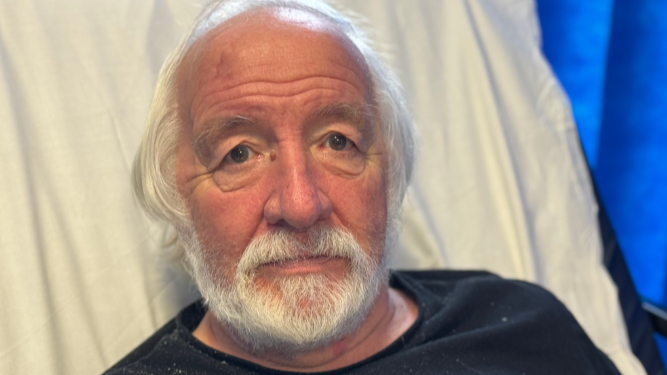
John Potter said he had "every sympathy" with the doctors staging the walkout
Since it began on Friday, of the 236 cancellations, 110 were operations with the rest made up of outpatient appointments, a trust spokesperson said.
Walsall Manor Hospital, which works collaboratively with New Cross, said it has cancelled 269 non-urgent appointments, 37 of which were operations which representing 10% of normal work.
BBC Midlands Today was given access to New Cross Hospital and spoke to staff and some patients about the effects of the strike.
At one point overnight on Monday, 200 patients were in the emergency department and they faced much longer waits - although Monday nights are traditionally busy in A&Es across the country, following a weekend.
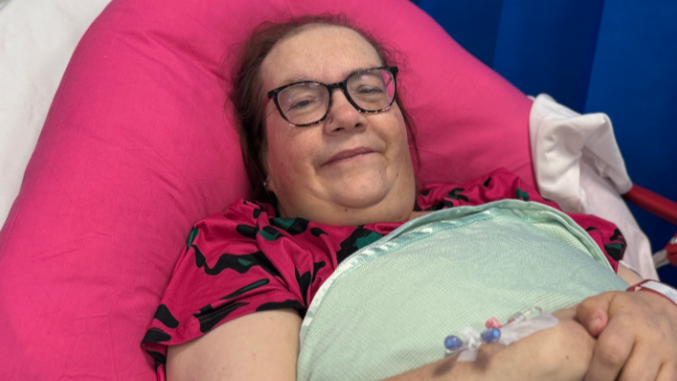
Juliette Ford, from Wednesfield, said she also supported the strike
Dr Harj Kainth, an acute medicine consultant at New Cross, said consultants were taking on the extra work and she had done three extra shifts.
"It's tiring because we're doing it on top of our usual clinical work so now I'll be back in next weekend as well and working all this week," she said.
John Potter, an 81-year-old grandfather and patient in the emergency department, said he "had every sympathy with them".
"But unfortunately, it does have a knock-on effect inside the hospital," he said.
Kevin Neal, a grandfather from Wednesfield who had collapsed at home, said he felt doctors should be paid more.
"Doctors have saved my life once so I quite agree they should be paid more," the 67-year-old said.
"It's a profession that takes a long time to get into."
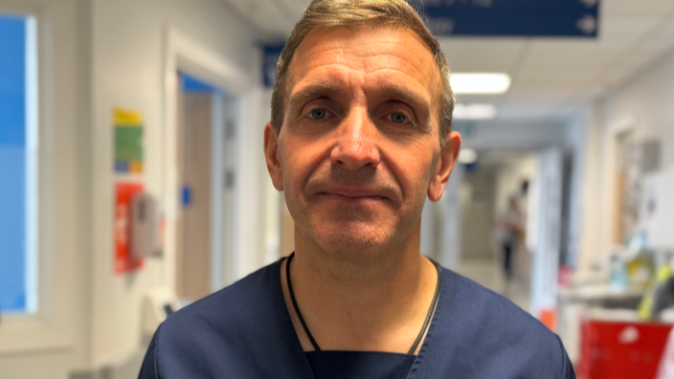
Dr Phil Dainty said there had been a lot of goodwill from staff
Patient Juliette Ford, 56, from Wednesfield said: "I haven't been neglected, [I've] been looked after so I really can't say I blame them because they do work hard for their money.
"They save lives at the end of the day and I don't think you can put a price on that to be honest with you."
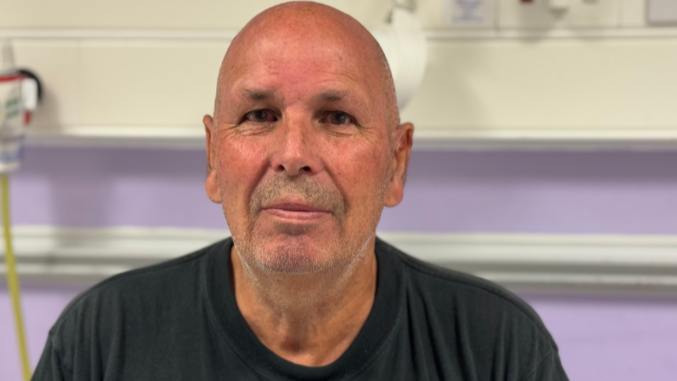
Kevin Neal, a grandfather from Wednesfield, said he also backed the striking doctors as they had saved his life in the past
Dr Dainty said it was a difficult situation with "a lot of goodwill".
"There's a lot of planning and organisation that goes into providing this sort of service for a few days, but ultimately it's also very, very difficult to sustain in terms of the individuals involved but also the other services that we're trying to run," he said.
Get in touch
Tell us which stories we should cover in Wolverhampton
Follow BBC Wolverhampton & Black Country on BBC Sounds, Facebook, external, X, external and Instagram, external.
Related topics
- Published28 July
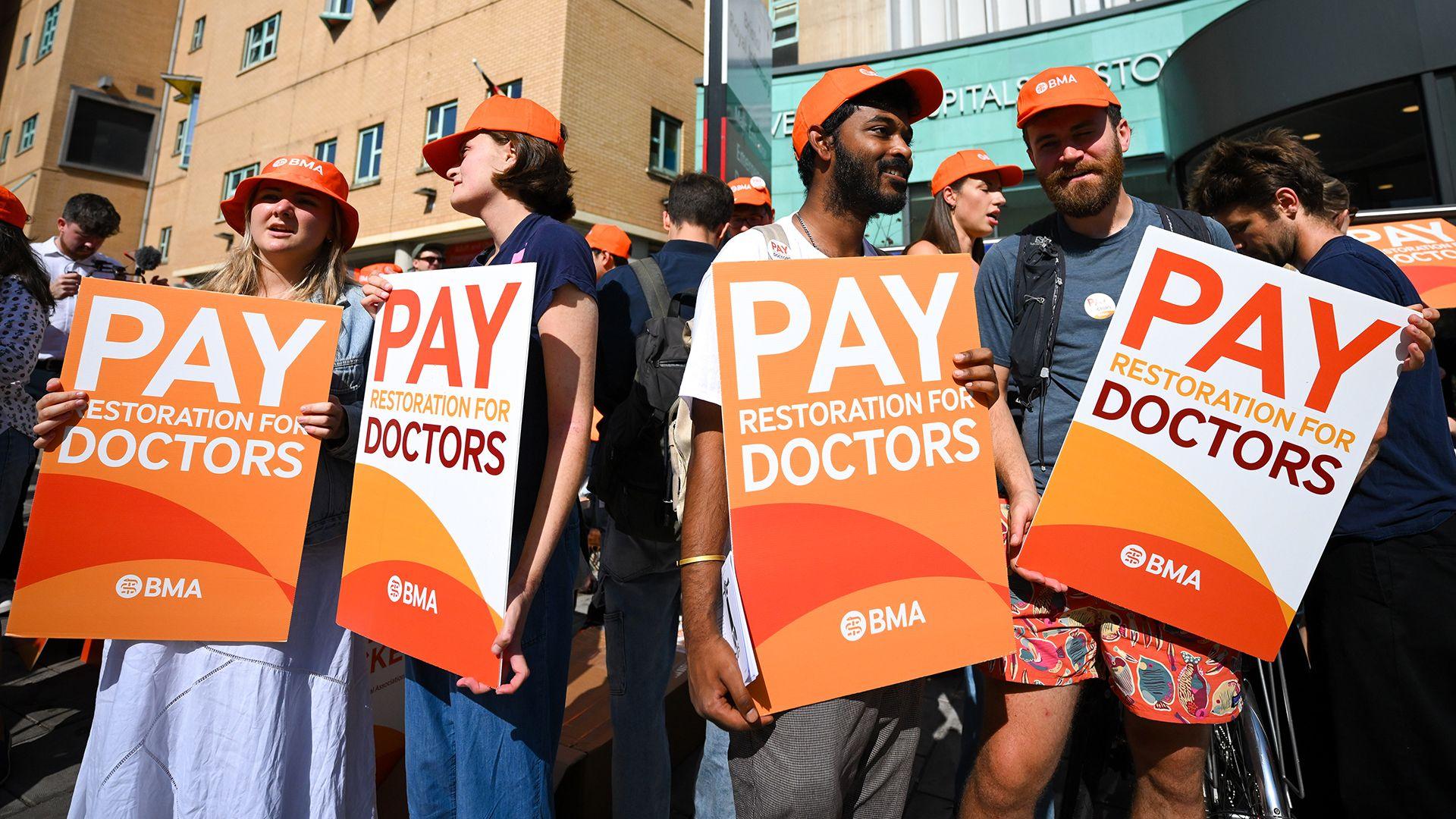
- Published29 July
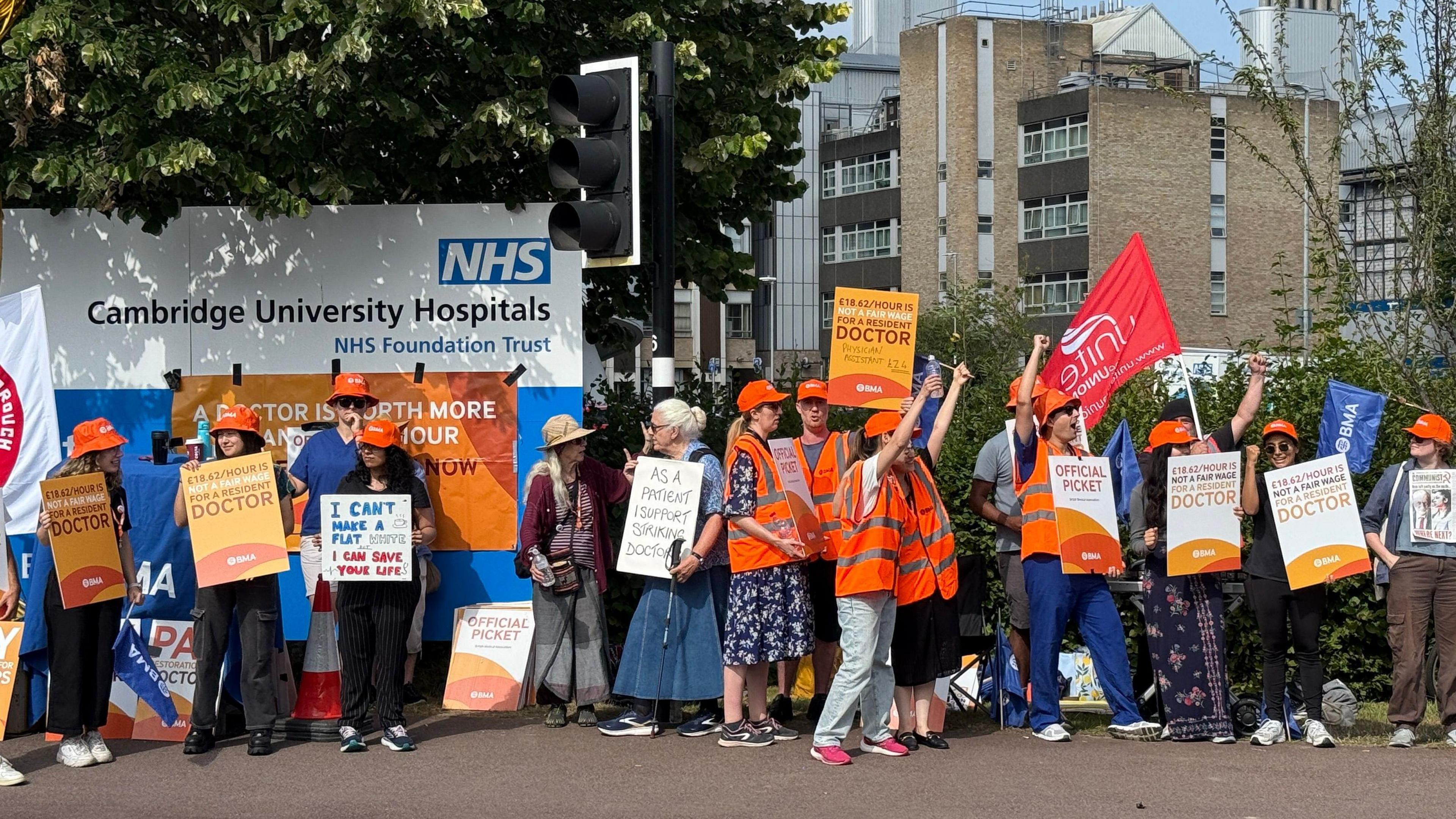
- Published25 July
